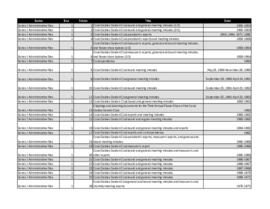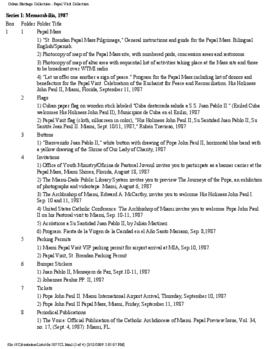- ASM0450
- Collection
- 1985-1988
"An archive containing material around the 1980s all-girl "punk-polka" band, Das Furlines, from New York. The lineup included Wendy Wild, Liz Luv, Holly Hemlock, Deb O'Nair (also of the Fuzztones), and Rachel Amodeo. Dubbed as an 'all-female quintet from N.Y.C. that derives their sound from a frothy blend of polka, bohemia, psychedelia, and dementia.' They released their debut album, Das Furlines Go Hog Wild, in 1985 on their own label, Palooka Records. During this time, they were also featured on Entertainment tonight and Andy Warhol's 15 Minutes.
Das Furlines garnered a reputation for sexually charged shows and their second album, The Angry Years, released in 1988 was 'an erotic concept album inspired by the self-help book Women Who Love Too Much.' They claimed to be 'healthier than slam dancing, sexier than a surf party, quicker than Schopenhauer.' The archive features professional photo shoot contact sheet and four 8"x10" prints showing the women of the band posed presumably for cover art and publicity images. One of these photos has women posing with Frank Zappa. A smaller 5"x7" photo shows a close up of an androgynous woman in sunglasses singing. Also included is a zine entitiled "Das Furlines Cookbook" and includes "Das Furlines Data Sheers" with information about each member as well as recipes for the food and drink that each woman liked. One of the flyers advertises a Das Furlines show at the legendart punk venue, CBGBs, where they played alongside Vernon Reid's Living Colour, Rod & Cones, and the Wild Stares. In an article featured on a flyer maquette Wild says 'most of the time we wear these elaborate headdresses that we made with Viking horns on them, of a bunch of snakes like a Medusa crown, so we have our arts and crafts side to the band. And we wear a lot of fur and frilly Alpine beerhall maid type of things, like braids in our hair and that.' She continues, 'it's a real yuk 'em up kind of show, you know, like drinking down steins of beer and polkaing onstage. It's really flipped-out garage polka music... the grandparents will love it, the kids will scream, and the teens will go berserk.' The band disbanded in 1988 but reunited in 1996 as a benefit for Wendy Wild's medical bills during her battle with breast cancer which she ultimately lost later that year." -Between the Covers Rare Books


